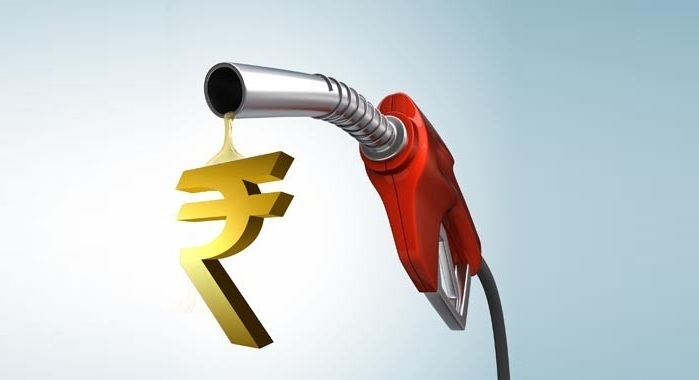Fuel prices in the country have been relentlessly rising. There is a consistent upward pressure on diesel and petrol rates. Petrol in the city cost Rs 88.27 per litre Wednesday, while diesel sold at Rs 84.68 per litre. The apparent reason for the upward movement in prices is the increase in international crude rates. The movement in oil price follows an illogical trend. In fact, it operates in an anti-people way. When international crude rates go up, the hike is inevitably passed on to consumers. But when global crude prices come down, it is the oil marketing companies (read the government) that skin the margin. Therefore, the consumer is at a loss both the times. It is a typical case of heads I win tails you lose.
With anti-Covid-19 vaccination gradually expanding in the world, economy is slowly beginning to look up. With this there is a corresponding rise in the demand for fuel. This has led to a gradual escalation in international crude prices. People are already reeling under a prolonged economic recession accentuated by the pandemic-triggered distress. And, in this backdrop, the upward movement in fuel prices is hurting the common man. Jobs have gone. Most salaried individuals are getting truncated pay. Even as household incomes are at rock bottom, high fuel rates are adding to the general woes of people. Retail petrol rates have risen by Rs 18.01 per litre since mid-March 2020 after the government raised taxes by a record margin to mop up gains arising from the fall in international oil prices. Similarly, diesel rates have gone up by Rs 15.44. As if this was not enough, the Union Finance Minister in the Union Budget added agri-marketing cess to petrol and diesel on the flimsy ground that there won’t be a fresh burden on the consumer on this count and the said tax will be adjusted against the existing taxes. But this was just eyewash. The rise in fuel prices is posing a major challenge to the Indian economy even as it struggles to come out of the deep morass of recession caused by the pandemic-induced economic slowdown. In this backdrop, there is no point to wait for the international crude prices to soften up. This is under nobody’s control. Therefore, relief to consumers can come only from a cut in government taxes which currently constitute a lion’s share of the fuel rates. Almost 60-70 per cent of the end cost of petrol and diesel are taxes and other charges, only 30-40 per cent of the oil component in India, is linked to the benchmark prices of crude oil in international markets. Therefore, the relief, if any, has to come from the taxes. India is notorious for its high taxes on fuel. This is high time the government slashed the size of the tax component to bring in immediate relief to general people.
As both the Centre and the state governments earn immensely from fuel taxes, we hardly hear a murmur of protest from political parties unless it’s in the Opposition both at the Centre and the state. The Centre should reduce the excise component while the state governments should cut value added tax. The Centre levies around Rs 35 as tax on petrol and diesel. This includes basic excise, special additional excise and road or infra cess. Added to that are taxes being levied by the state governments, which vary from one state to another. There has been a demand to include petrol and diesel under the goods and services tax (GST). However, it has evoked zero political response. As pricey fuel encourages people to cut down on consumption. Therefore, rising fuel rates will stunt economic recovery.
